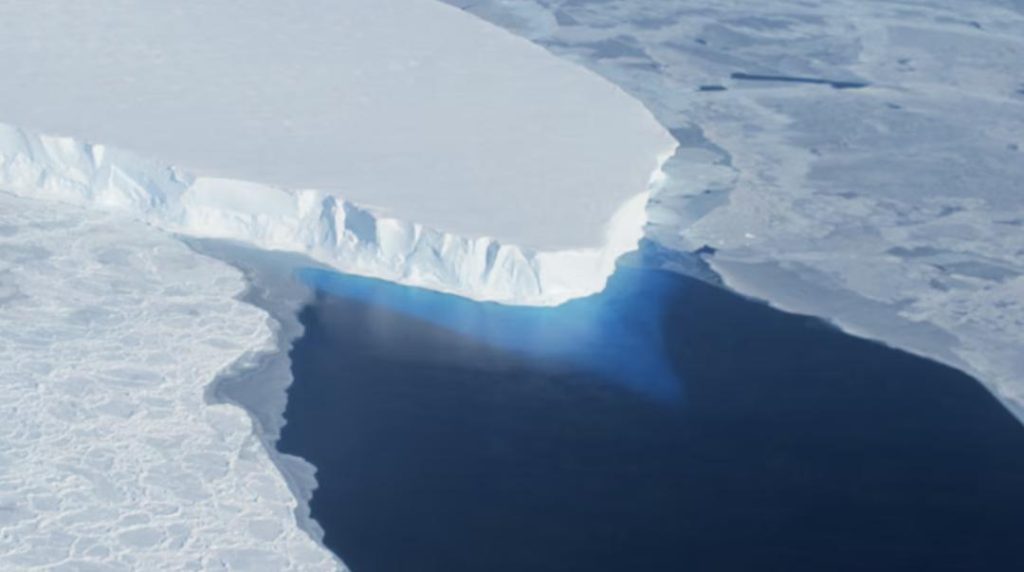
Melting Glaciers may Trigger Hundreds of Dormant Volcanoes: Study
The melting of glaciers, a phenomenon closely linked to climate change, may have a more devastating impact than previously thought. A recent study suggests that as ice recedes, it could trigger hundreds of dormant volcanoes, leading to a wave of explosive eruptions across the globe.
The research, published in the journal Nature, found that the retreat of glaciers relieves pressure on magma beneath, allowing it to rise to the surface and erupt. The scientists believe that this phenomenon could lead to a significant increase in volcanic activity, particularly in regions with extensive glacier coverage, such as Antarctica, Chile, and Alaska.
The study’s findings are alarming, as volcanic eruptions can release large amounts of gases, including carbon dioxide, methane, and sulfur dioxide, into the atmosphere. These gases can accelerate global warming, creating a dangerous cycle that could have far-reaching consequences for the environment and human societies.
Dr. Emily Lane, a volcanologist at the University of Bristol and lead author of the study, stated, “We’ve known for a long time that volcanic eruptions can affect the climate, but we’re only just starting to understand the role that glaciers play in triggering these events.”
The researchers used computer simulations to model the behavior of magma beneath glaciers and found that as the ice melts, the pressure on the magma decreases, allowing it to rise to the surface more easily. They also analyzed data from past volcanic eruptions and found that many of them were preceded by significant glacier retreat.
The study’s authors emphasize that not all glaciers are created equal, and those in certain regions are more vulnerable to triggering volcanic activity. Antarctica, for example, is home to several massive ice sheets that cover vast areas of the continent. As these ice sheets melt, they could potentially trigger dormant volcanoes beneath the surface.
Chile and Alaska are also regions of concern, as they have extensive glacier coverage and a history of volcanic activity. The Andes mountain range in Chile is home to numerous volcanoes, and the researchers believe that melting glaciers in the region could lead to an increase in eruptions.
Dr. Lane warned, “If we don’t take action to mitigate climate change, we could see a significant increase in volcanic activity in these regions. This could have devastating consequences for the environment and human societies.”
The study’s findings are a sobering reminder of the complex and interconnected nature of the Earth’s systems. As the planet continues to warm, the consequences of climate change are becoming increasingly clear, and it’s essential that we take action to address this crisis.
What Can We Do?
While the study’s findings may seem daunting, there are steps that we can take to mitigate the impact of melting glaciers on volcanic activity. Some of the key measures include:
- Reducing greenhouse gas emissions: By cutting emissions, we can slow the rate of climate change and reduce the pressure on glaciers.
- Monitoring glacier retreat: Scientists and researchers can continue to monitor the retreat of glaciers and track the behavior of magma beneath the surface.
- Improving volcanic monitoring: Enhancing our ability to detect and monitor volcanic activity can help us prepare for potential eruptions and minimize their impact.
- Developing early warning systems: Developing early warning systems for volcanic eruptions can help us evacuate people from affected areas and reduce the risk of harm.
Conclusion
The study’s findings are a stark reminder of the complex and interconnected nature of the Earth’s systems. As we continue to navigate the challenges of climate change, it’s essential that we take a holistic approach to addressing this crisis. By reducing greenhouse gas emissions, monitoring glacier retreat, improving volcanic monitoring, and developing early warning systems, we can work to mitigate the impact of melting glaciers on volcanic activity and reduce the risk of devastating consequences for the environment and human societies.
Source:






